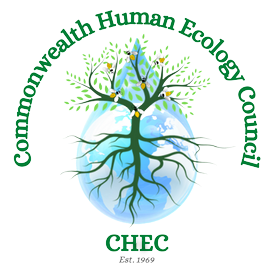The Impact of Palm Oil on the Environment
Today, you have most likely used several products containing palm oil. It's a growing issue in debates surrounding food waste, sustainability and climate change and one that needs to be addressed. (Learn how to limit your own food waste here!) But what is the impact palm oil in the environment? Let's take a look!
In a report published by the Guardian earlier this year, it was stated that every person around the world consumes an average of 8 kg of palm oil a year, most of it through the food we eat.
However, palm oil is also a common ingredient in other products, such as cleaning products and personal care items, e.g. shampoo, lotion and make up. According to WWF, almost 50% of the packaged products in supermarkets contain palm oil.
Avoiding palm oil is nearly impossible, but does the impact of palm oil have to be a problem? If it is a problem, what can we do about it?
What is Palm Oil?
Before discussing the environmental concerns of palm oil, let’s just quickly clarify what palm oil is.
Palm oil is a vegetable oil that is derived from oil palm trees, mostly grown near the equator. The oil itself is found in the thousands of small fruits that are growing in large bunches on the trees.
Indonesia and Malaysia accounts for 86% of the global production, and more than half of the global demand comes from Asia. The worldwide production of palm oil has been increasing for several decades, and experts believe that this will continue. By 2050, the demand for palm oil is expected to quadruple.
Image of Palm Oil Fruit
Problems with Palm Oil
Palm oil has been criticized by many, including scientists, activists and organisations such as Greenpeace and the Palm Oil Investigations.
In a report published by the BBC, environmentalists argue that the farming of oil palm trees is having damaging effects on the environment.
Deforestation - cutting or burning down forests and trees to clear land to use it for something else - is frequently practiced to plant oil palm trees. Burning down forests lead to a loss of biodiversity, an increase in air pollution and climate change.
Since oil palm trees grow in tropical climates near the equator, palm oil has been and continues to be a major driver of deforestation of some of the world’s most biodiverse forests. The plantations of oil palm trees are threatening already endangered species, such as the Orangutan and the Sumatran rhino.
What About Certified Palm Oil?
If environmentalists urge us to avoid palm oil, then what about certified palm oil?
The idea of certified palm oil is that consumers will have the possibility to buy oil that is being sustainably produced. However, it is difficult to make sure if the palm oil we buy in the store has been produced in a sustainable way.
For instance, palm oil is considered to have one of the most complicated supply chains of any ingredient. The oil is usually coming from a multitude of palm oil fruit suppliers, which means that it is nearly impossible to keep track of where the oil is coming from.
The current certification system has also been criticised by environmentalists for other reasons.
In the Guardian, it was stated that a product can receive the “certified sustainable” label even if 99% of the palm oil used in the product is produced from recently deforested land. A similar issue in sustainable fish certification standards exists!
The reason for having less strict certification criteria is to encourage participation, according to the certification system RSPO. If manufactures realise that they can sell certified palm oil for a higher price, the production of certified oil will most likely increase. Once production increases stricter policies could be introduced.
The Impact of Palm Oil
If buying certified palm oil does not rule out a dangerous negative impact of palm oil such as deforestation, does this mean that we should avoid palm oil completely?
Other types of oil, such as rapeseed oil and sunflower oil, are generally seen as better for the environment. However, some people argue that palm oil is the best type of vegetable oil to produce. This is because palm oil is a super-efficient crop that produces more oil from less land than any other vegetable oil.
According to the European Palm Oil Alliance, palm oil accounts for 6.6% of cultivated land for oils and fats, while delivering 38.7% of the output. Since the global demand for vegetable oil has been climbing steadily for decades, this means that it will not be possible to replace palm oil with other types of oil without further increasing deforestation.
We have indeed put ourselves in a difficult position. It does not seem to be a unified answer to what option is regarded as the most sustainable alternative. However, one thing is clear: if we want to go towards a sustainable future, something must change or the impact of palm oil on the environment will continue having negative effects.

